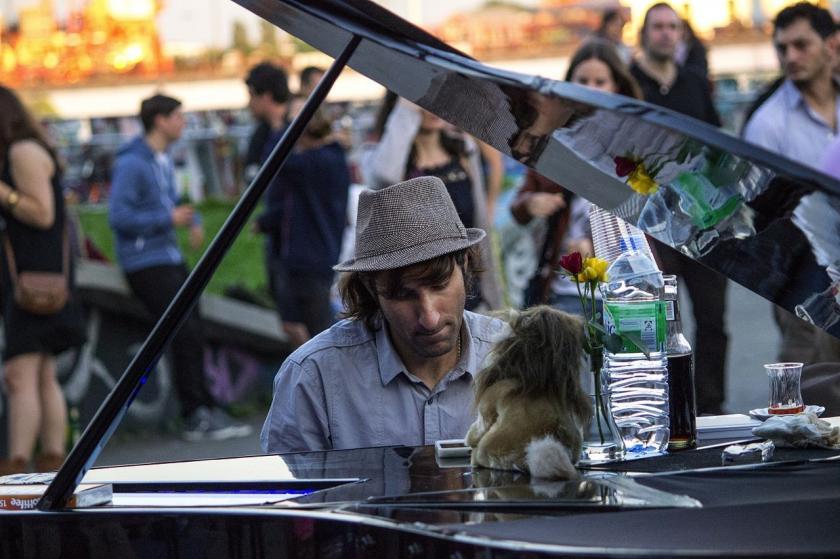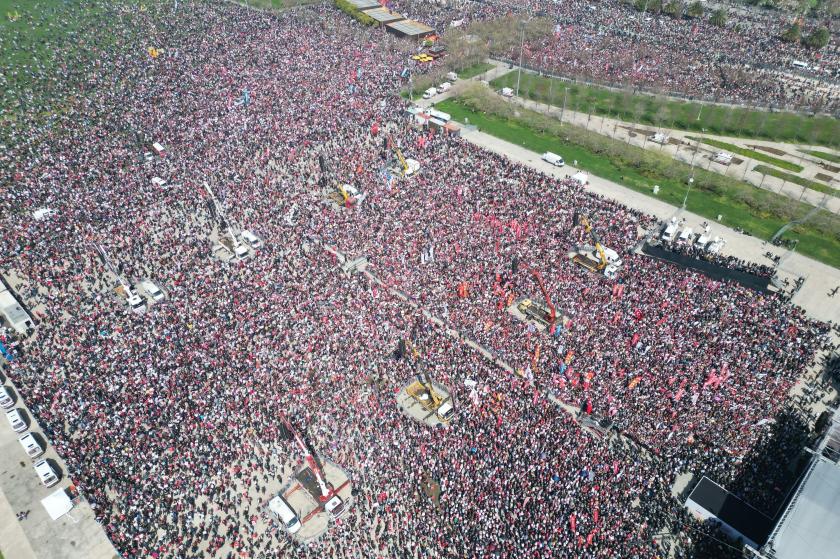From the "century of Turkey" to the disaster of the century!

Yusuf Karadaş

Fotoğraf: DHA
On 28 October 2022, while announcing his vision for 'Turkey's century', President Tayyip Erdoğan said: "These have become the standard level of life for our citizens who live safely in the house they bought from TOKİ or a contractor, and enjoy the car they own. Travelling safely on the divided roads and motorways we have constructed, reaching their destinations quickly whether by high-speed train or by plane, our people can spare more time for themselves. We have built an infrastructure that enables our people to have everything that is available in developed countries, and to access them easily under the umbrella of a strong social state."
Approximately 3 months after Erdoğan's vision of the 'century of Turkey', which he announced with the claim of making Turkey one of the most developed and powerful countries of the world in the second century of the republic, the earthquakes of 6 February took place. For days, cries of "Where is the state?" went up from the cities hit by the earthquake. Because contrary to Erdoğan's claims of a "strong social state" and "easily accessible infrastructure", neither the state nor Disaster and Emergency Management Presidency (AFAD), the organisation responsible for search and rescue operations, was present even when the lives of tens of thousands of people under the rubble were at stake.
The fastest state institution which "respond" to the earthquake was the Religious Affairs (Diyanet), whose budget was 4.5 times that of AFAD. AFAD's budget is 8 billion 75 million liras and the budget of the Presidency of Religious Affairs is 35 billion 910 million liras). While there was a need for silence to save those under the rubble, the decision of the Religious Directorate to read the 'Sela' was actually a harbinger that the government/state would leave those under the rubble to die.
The airports and motorways that Erdoğan praised so much became unusable in the earthquake. Even those who wanted to rescue their relatives with their own efforts could not enter the cities hit by the earthquake for days.
Hospitals, schools, dormitories and public buildings built by TOKİ were levelled to the ground like Erdoğan's vision document.
The fact that GSM operators remained bystanders to the serious disruptions in this process, in which communication is of vital importance, and that a large part of the earthquake zones could not be supplied with electricity for days, also showed how big the bill of the privatisation policy was to the people.
On the second day of the earthquake, when no aid had been delivered to a large part of the earthquake zones, Erdoğan appeared in front of the media and threateningly declared a 3-month state of emergency and talked about "opening their books when the time comes", showing the real face of the government whose "social" mask had fallen.
Erdoğan, who travelled to the cities hit by the earthquake only on the third day, talked about the "disaster of the century" and the government spokespersons and media tried to cover up the failure in intervention by clinging to this discourse.
The government's vision of 'Turkey's century' announced three months ago was replaced by the discourse of 'the disaster of the century'.
Imagine that the government in this country has been boasting of the airports, roads, bridges, hospitals and mass housing built by TOKİ and its construction monopolies for 20 years. However, the magnitude of the destruction caused by the earthquake of 6 February also answers the question of what is the biggest disaster that has ever befallen this country: If we are to talk about the disaster of the century, it is none other than this government, which plunders natural resources and cities, and disregards human life for rent and plunder. On the third day of the earthquake, when thousands of people were waiting to be rescued, Erdoğan talked about putting TOKİ and contractor companies into operation "quickly" and said "These are things we know, we can do them. We are a government that has proved ourselves in these matters" leaves nothing more to be said!
However, the fact that Erdoğan's government is the most refined representative of an economic model based on construction, looting and rent does not mean that the problem lies with this government itself. Lütfü Savaş, who was elected mayor from AKP in 2009 in Antakya, which suffered the greatest destruction and the highest number of casualties in the earthquake, and who has been the mayor of Hatay Metropolitan Municipality from CHP since 2014, stands before us as a striking example in terms of understanding that this problem of looting and rent is not just a party problem, but a system problem.
When Erdoğan announced his vision for the 'century of Turkey', he said of MHP Leader Bahçeli, "I would like to express my gratitude for their sincere and strong support under the umbrella of the People's Alliance." Bahçeli, who remained silent in the first week of the earthquake, accused the people and volunteer organisations who rushed to the cries of those under the rubble "Where is the state?" and tried to help them selflessly of "trying to show the state as incapable", showing us once again that Erdoğan's gratitude to him was not without reason!
Bahçeli from Osmaniye started to visit the earthquake zones together with Erdoğan two weeks after the earthquake. It is obvious that the purpose of this joint visit to the earthquake zone by Erdoğan and Bahçeli, who threatened the people and volunteer organisations from the very first day, was not to heal the wounds of the people. It would not be an exaggeration to say that the architects of the disaster of the century, whose first job was to declare a state of emergency "against the looters", were in the field to study how to use this disaster for the continuation of their own power.
If the solidarity that emerged during the earthquake in Turkey, not only in the cities hit by the earthquake but also in Istanbul and many other cities are under serious risk, cannot be carried forward to the struggle for safe housing and a decent life against the government and this order of rent and plunder, it is not possible for the people who left thousands of their children under the rubble to be saved from being fed to the vultures.
{{482115}}
{{482062}}
{{481563}}
{{481574}}
{{481464}}




Follow Evrensel